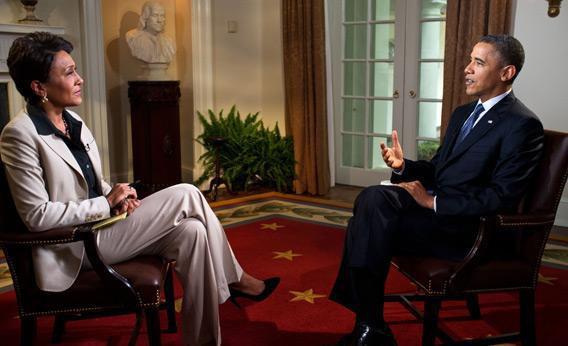President Obama endorsed gay marriage in an interview Wednesday. The president has described his views on gay marriage over the past few years as “evolving,” but many believe he was just waiting for public opinion to catch up with him. Can someone’s moral principles really evolve?
Yes. While some of the growing national acceptance of gay marriage is the result of turnover—as older, more socially conservative people die off—there has been a significant amount of mind-changing among members of the American public. Many sociologists believe that morality derives from intuition rather than reason, and our rational explanations for moral positions are simply post hoc justifications. One of the primary movers of our intuitive sense of morality, the argument goes, is called the cohort effect. According to this theory, people shift their views so they match those of their peers. That doesn’t explain why those peers changed their views—at some point, someone has to have changed opinions on his or her own—but the cohort effect does serve to accelerate a broad moral shift across society.
On an individual level, moral judgments are also driven by visceral feelings of repugnance. Social conservatives, for example, tend to find the thought of homosexual activity—or even the mere sight of a same-sex couple holding hands—somewhat disgusting. While it’s difficult to change one’s general proclivity for disgust, there is ample evidence that repeated exposure to a particular disgusting image can lessen its impact. Medical students, for example, consider cadavers far less disgusting by the end of medical school, even though they find the smell of urine or the idea of accidentally drinking a stranger’s soda as disgusting as ever. The same scenario can also play out in societal attitudes toward homosexuality. Increased exposure may have lessened the negative responses to it, and, as the sense of revulsion fades, so does opposition to gay marriage. In this sense, evolution is a reasonable metaphor for the process by which opponents of gay marriage have adapted to a changing environment.
Vice President Biden took some stick for his statement on Sunday’s Meet the Press that “Will & Grace probably did more to educate the American public [about homosexuality] than almost anything anybody’s ever done so far.” There is research, however, to suggest the VP is right about the influence of television. Economists Robert Jensen and Emily Oster found that access to cable television significantly changed the social views of Indian villagers. Those who could watch the newest shows, with their cosmopolitan mores, became more opposed to domestic violence, less likely to prefer sons over daughters, and more likely to enroll their children (especially girls) in school. Cable-watchers also had fewer children, on average.
Despite this research on the roles of disgust and passive television watching, it’s important to keep in mind that the application of reason does play into the development of individual morality. People sometimes change their mind as a result of simple rational persuasion, even if it’s difficult for sociologists to study.
Got a question about today’s news? Ask the Explainer.
Explainer thanks Paul Bloom of Yale University and author of the forthcoming book Just Babies: The Origins of Good and Evil, Jonathan Haidt of the NYU-Stern School of Business and author of The Righteous Mind: Why Good People Are Divided by Politics and Religion, and David Pizarro of Cornell University.
Video Explainer: Why Do Parrots Parrot, and Do They Know What They’re Saying?
This video was produced from an original Explainer by Will Oremus.
Want more questions answered? You can now watch video Explainers at Slate’s News Channel on YouTube.
